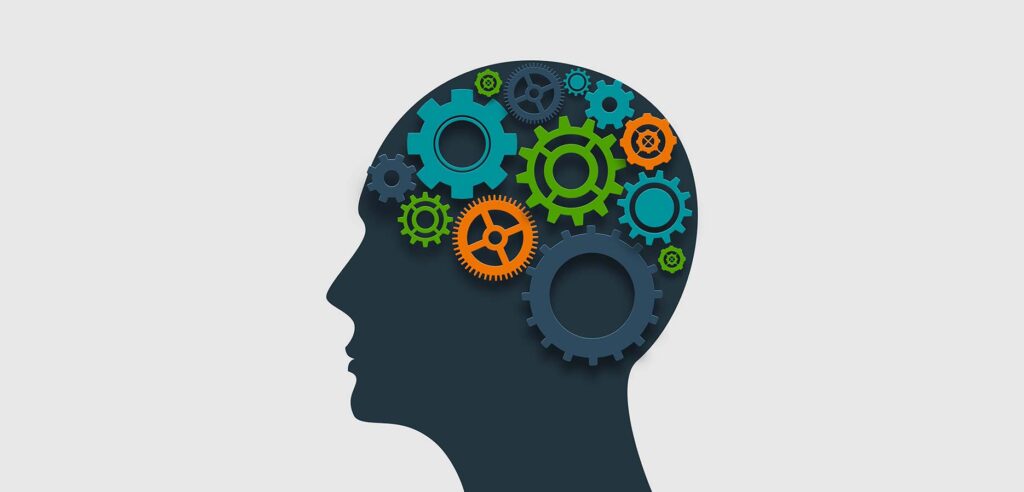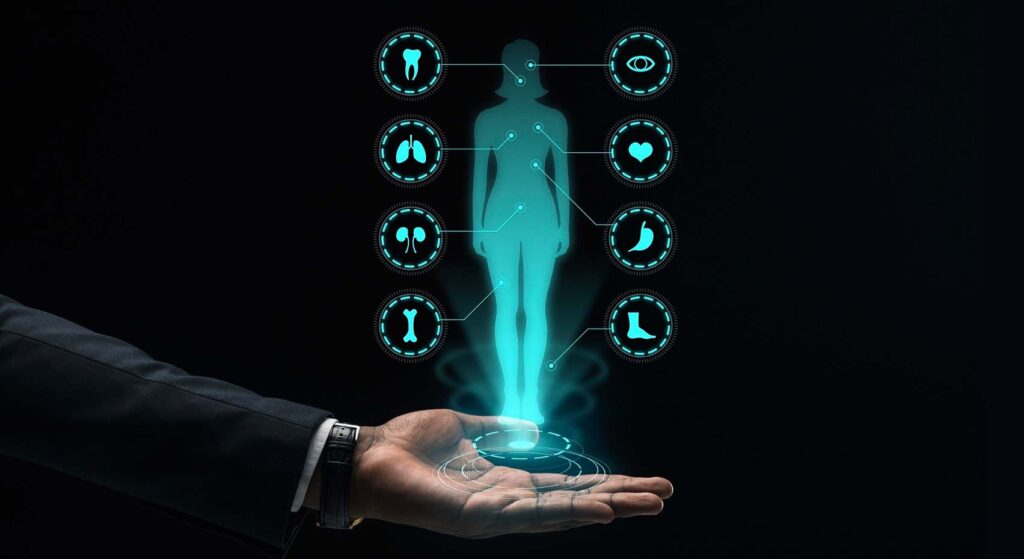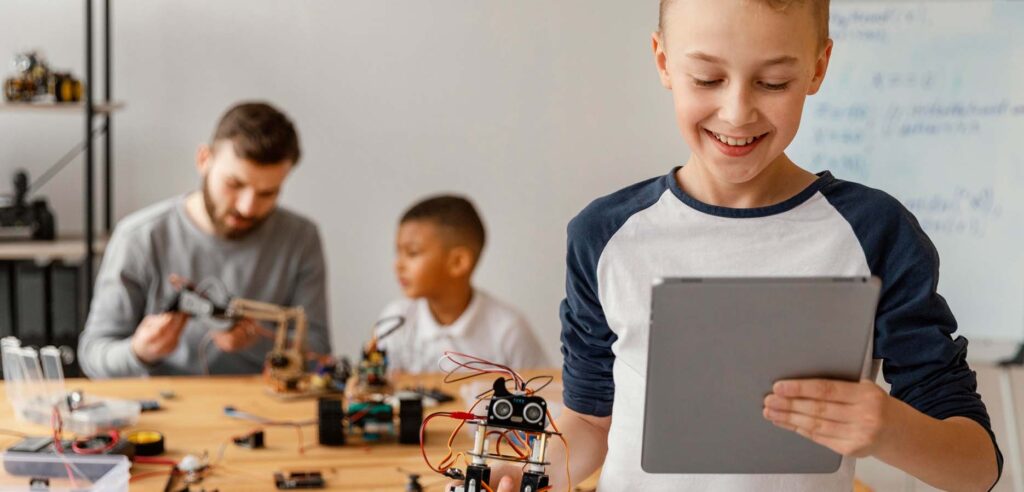Welcome to our latest article where we will venture into the intriguing topic of Human vs AI in modern technology. As we progress further into the digital age, AI’s impact on society continues to grow. It’s natural to wonder how the rise of AI will impact our relationship with modern technology and influence the future.
Key Takeaways
- Modern technology is being shaped by the dynamic between humans and AI.
- The rise of AI in everyday life is becoming more prevalent.
- Human intelligence remains an essential asset despite AI advancements.
- AI is transforming the workplace, automating tasks and augmenting human productivity.
- Ethical concerns arise as AI continues to advance.
The Rise of AI in Everyday Life

Artificial intelligence (AI) has rapidly made its way into our daily lives, transforming the way we interact with technology and each other. From virtual assistants like Siri to smart home devices like Alexa, AI has become an integral part of our routines, making our lives more convenient and efficient.
AI has also revolutionized industries such as healthcare, finance, and transportation, improving accuracy, speed, and safety. For example, AI-powered medical diagnostic tools are enabling doctors to diagnose diseases faster and with greater accuracy. Autonomous vehicles are enhancing transportation safety by detecting and responding to potential hazards before they become accidents.
The integration of AI in everyday life has not only improved functionality but has also created new opportunities for innovation and entrepreneurship. AI-powered products and services are continually being developed, providing solutions to new problems and enhancing existing ones.
“AI is a tool that can unlock untold potential. We must ensure that it is developed and used ethically and responsibly.”
While AI has its advantages, it also raises concerns about privacy, bias, and decision-making. The use of AI in important areas such as law enforcement and healthcare requires careful consideration and ethical frameworks to ensure that AI is used in a way that benefits society as a whole.
The integration of AI in our lives is continually evolving, and its impact is set to increase in the years to come. As AI technology develops and becomes more sophisticated, it will undoubtedly transform the way we live, work, and interact with each other.
The Power of Human Intelligence

As technology continues to advance, there is an increasing concern that AI will eventually surpass human intelligence. While AI has certainly shown great promise in specific areas, such as data analysis and pattern recognition, it is important to remember that human intelligence remains a uniquely valuable asset.
One of the key qualities that sets human intelligence apart is our ability to make complex decisions based on a wide range of factors. Unlike machines, we are capable of weighing different priorities and making judgments based on our experiences and emotions. This ability to think critically and creatively has led to some of history’s most ground-breaking discoveries and innovations.
Furthermore, humans possess a unique capacity for empathy and social interaction, which forms the basis of much of our daily communication both in personal and professional settings. While AI has shown promise in replicating human-like interactions, it still lacks the depth and complexity of genuine human engagement.
Human intelligence is also essential in areas such as art, music, and literature, where creative expression and interpretation are foundational. While AI has shown promise in generating creative content, it still lacks the emotional nuance and intuition that humans bring to these fields.
In conclusion, while AI has certainly shown great potential in specific areas of intelligence, human intelligence remains a powerful and unique asset with invaluable contributions in multiple fields of life.
AI in the Workplace
Artificial intelligence (AI) is revolutionizing the workplace, from streamlining operations to enhancing decision-making. The rise of automation and machine learning has led to a growing demand for AI technology in various industries, including healthcare, finance, and manufacturing.
AI is being used to automate routine and monotonous tasks, such as data entry and analysis, freeing up human resources to focus on more complex and creative tasks. In addition, AI-enabled systems have the ability to learn and adapt, making them valuable in predictive analytics and forecasting.
| Benefits of AI in the workplace | Challenges of AI in the workplace |
|---|---|
|
|
Despite these challenges, AI has the potential to enhance human capabilities in the workplace. The symbiotic relationship between humans and AI promises to transform industries and revolutionize the way we work.
AI in the Workplace: Examples
Examples of AI in the workplace include virtual assistants, chatbots, and predictive analytics. Virtual assistants, such as Amazon’s Alexa and Apple’s Siri, are used to manage schedules, make appointments, and provide information. Chatbots are used in customer service, answering frequently asked questions and resolving simple issues. Predictive analytics is used in marketing and sales to forecast trends and optimize pricing strategies.
AI is also being used to enhance job safety in hazardous industries, such as mining and construction. Drones and robots are being used to inspect equipment, identify potential hazards, and identify safety risks.
As AI continues to advance, it is important to recognize its limitations and the need for human oversight. The integration of AI in the workplace requires a thoughtful and ethical approach, balancing the benefits of automation with the value of human creativity and decision-making.
The Ethical Dilemma of AI
As AI continues to advance and be integrated into various aspects of our lives, ethical concerns arise regarding its impact on society. One of the key concerns is privacy. AI relies on data to operate, and the collection of personal data raises questions about who has access to this information and how it is being used. Additionally, bias is a significant issue in AI. AI algorithms are only as objective as the data that is used to train them, and biases can be unintentionally introduced into the system. This can lead to unfair treatment of certain groups and perpetuation of existing societal biases.
Another ethical dilemma is the role of AI in decision-making. As AI systems become more autonomous, they may be involved in decisions with significant consequences, such as healthcare, finance, and law enforcement. It is crucial to ensure that these decisions are fair and unbiased, taking into account the context and complexity of human situations.
Overall, the ethical framework surrounding AI and its use is crucial to ensure that it is developed and implemented in a responsible and ethical manner. Regulations and guidelines must be put in place to safeguard against abuses of power and unintended consequences. By doing so, we can harness the power of AI while minimizing its negative impacts on society.
AI and Healthcare

Artificial intelligence is transforming the healthcare industry, offering new tools and insights that improve patient outcomes and streamline operations for healthcare professionals. From diagnostics to treatment plans, AI has the potential to revolutionize every aspect of healthcare.
One area where AI is already making a significant impact is in medical imaging. AI-powered diagnostic tools can help radiologists quickly and accurately identify abnormalities, assisting in the diagnosis of diseases like cancer, Alzheimer’s, and heart disease. This technology can also help predict the progression of diseases and identify patients who may be at risk for developing them.
AI is also being used to develop personalized treatment plans for patients. By analysing large amounts of data from a patient’s medical history, genetic information, and lifestyle factors, AI algorithms can determine the best course of treatment for an individual. This approach can lead to more effective treatments, fewer side effects, and better patient outcomes.
In addition to diagnosis and treatment, AI is also being used to improve patient experience. Virtual assistants and chatbots can provide patients with instant access to healthcare information and assist with scheduling appointments. This technology can also help healthcare providers manage patient data and streamline administrative tasks, freeing up more time to focus on patient care.
While AI-powered healthcare offers many benefits, there are also challenges to consider. Concerns around data privacy, algorithmic bias, and the impact on healthcare jobs must be addressed to ensure that the benefits of AI are realized without negative consequences.
Overall, the integration of AI into healthcare holds great promise for improving patient outcomes and advancing medical research. As the technology continues to evolve, healthcare professionals must carefully consider its implementation to ensure that it is used ethically and effectively.
AI in Education

AI is transforming the landscape of education, opening up new avenues for student learning and teacher support. From personalized learning to automated grading, AI has the potential to revolutionize the way we educate future generations.
One of the primary benefits of AI in education is its ability to provide individualized learning experiences. Through the use of adaptive learning algorithms, AI can analyze student data and tailor instruction to their specific needs and learning styles. This not only enhances student engagement but also provides teachers with valuable insights into student progress and areas where additional support is needed.
AI can also take on administrative tasks, freeing up time for teachers to focus on instruction and student support. Automated grading and feedback systems, for example, can help teachers provide timely and constructive feedback to students, allowing them to improve their performance and understanding.
However, there are also challenges to the integration of AI in education. One concern is the potential for biases in the algorithms used to personalize learning. It is crucial to ensure that AI systems are developed with sensitivity to issues of inclusivity and equity in education.
Additionally, AI should be viewed as a complement to, rather than a replacement for, human instruction. The importance of teacher-student interactions and the value of a well-rounded education cannot be understated.
The future of AI in education is promising, and there is no doubt that it will play an increasingly significant role in shaping the learning experiences of students around the world.
Human Creativity vs AI Creativity
In the world of creativity, humans have always been the undisputed champions. From painting masterpieces to composing timeless music, our ability to create has been the cornerstone of civilizations throughout history. Recently, however, AI has emerged as a surprising contender in the field of creativity.
Through machine learning and advanced algorithms, AI has been able to generate artwork, music, and even literature that shows a level of creativity that was once thought to be exclusive to humans. In fact, some experts have claimed that AI-generated content may one day surpass human creativity in certain areas.
But is this truly possible? While AI may be able to emulate human creativity to a certain extent, there are several qualities that remain unique to human beings. For example, human creativity is often driven by emotion and personal experiences, which are difficult to replicate in machines. Furthermore, humans have an innate ability to improvise and adapt their creative output, whereas AI is limited to its programming and data input.
Despite these limitations, AI creativity has already shown promise in several fields. In music, for example, AI has been used to compose film scores and even entire albums. In visual arts, AI-generated paintings have been exhibited in museums and sold at auctions for millions of dollars. However, these examples often require human input, such as setting parameters or selecting the best output from a pool of generated options.
One field where AI creativity is still in its infancy is writing. While AI can generate coherent sentences and even paragraphs, creating compelling narratives and complex characters remains a challenge. Human writers still hold an advantage in this area, with their ability to vividly describe emotions and thoughts, as well as to create engaging dialogue and plotlines.
Overall, the future of human vs AI creativity remains uncertain. While AI may continue to improve and produce impressive results, the value of human creativity cannot be underestimated. The blend of human and AI creativity can lead to ground-breaking innovations that were once thought impossible. As long as we continue to celebrate and nurture human creativity, while also exploring the potential of AI, the possibilities for the future are endless.
The Future of Human vs AI Collaboration
As we continue to witness the rise of AI in various fields, the question of human vs AI collaboration becomes increasingly important. The potential for synergy between human intelligence and AI capabilities can lead to ground-breaking innovations in healthcare, education, cybersecurity, and more. However, it is also vital to address concerns and find a balance in this dynamic.
Benefits of Collaboration
The integration of AI in different industries can result in improved efficiency, accuracy, and productivity. For example, in healthcare, AI can help with medical image analysis and personalized treatments based on patient data. In education, AI can assist with personalized learning, identifying students’ strengths and weaknesses to develop customized learning plans.
Moreover, the collaboration between human creativity and AI can result in unique content creation, such as the use of AI in music and art. AI can generate initial ideas and assist with production, while human creativity can add nuance and emotional depth to the final product.
Challenges of Collaboration
One of the significant challenges of human vs AI collaboration is the potential for job displacement. AI can automate many tasks, creating redundancy in certain industries and requiring reskilling of the workforce. Additionally, there are concerns about privacy, bias, and accountability in decision-making when AI is involved.
Furthermore, there is a risk of overreliance on AI, possibly leading to the neglect of human expertise and intuition. The human element is essential in decision-making, especially in fields where empathy and creativity are critical.
Finding Balance
The future of human vs AI collaboration requires finding balance and addressing these challenges. It is crucial to invest in developing the skills and knowledge required for integrating AI into different industries while also safeguarding against potential negative consequences.
Moreover, ethical frameworks and regulations must be in place to ensure that AI is developed and used in a responsible and transparent manner. This includes addressing issues such as data privacy, bias, and accountability.
Ultimately, the future of human vs AI collaboration is about synergy, with both human intelligence and AI capabilities contributing to transformative change. By understanding and embracing this dynamic, we can navigate the challenges and create a future that benefits both humans and AI.
The Impact of AI on Society
The impact of AI on society is significant and multifaceted, affecting different areas of life in both positive and negative ways. As AI continues to advance, it poses challenges and opportunities for individuals, organizations, and governments, raising important questions about the future of human vs AI interaction and its implications for society as a whole.
Employment
One of the most significant impacts of AI on society is its effect on employment. While AI has the potential to automate tasks and increase efficiency, it also presents the risk of job displacement and the need for new skill sets. As AI becomes more prevalent in different industries, it’s crucial to consider the long-term effects on employment and support the development of new training and education programs to help workers adapt to the changing job landscape.
Economy
AI’s impact on the economy is complex, with potential benefits and challenges. AI can increase productivity, reduce costs, and enhance innovation, but it also presents challenges like data privacy and security concerns. Governments and organizations must work together to ensure that AI is ethically and effectively integrated into the economy, supporting growth and stability while minimizing risks.
Privacy
As AI gathers and processes vast amounts of data, privacy has become a major concern. There is a risk that personal information could be mishandled or used for unethical purposes without proper regulation, potentially jeopardizing an individual’s autonomy and security. It’s important to establish clear ethical frameworks and regulations to ensure that AI’s use of personal data is responsible and transparent.
Social Dynamics
AI’s impact on social dynamics is another important consideration. As AI becomes more prevalent in different areas of life, it can bring about changes in how we interact with each other and how we perceive the world. For example, AI can perpetuate biases and stereotypes if not designed and used responsibly. By promoting diversity and inclusivity in AI development and application, it can play a positive role in shaping our social interactions.
Conclusion
The impact of AI on society is complex and multifaceted, requiring careful consideration and ethical frameworks to ensure that its integration benefits individuals and communities. By addressing challenges and promoting responsible use, we can create a future where AI and human intelligence collaborate towards transformative and positive change while preserving human autonomy and values.
The Conclusion: Balancing Human and AI
In weighing the benefits and challenges of human vs AI in modern technology, it is clear that both have unique strengths that can be leveraged to create a better future. AI plays an increasingly significant role in our daily lives, from personalized healthcare to cybersecurity. At the same time, human intelligence remains a powerful asset that sets us apart from AI.
As we move forward, it is crucial to consider the ethical implications of AI, including privacy, bias, and decision-making. It is essential to establish ethical frameworks and regulations to ensure that AI is developed and used in a responsible and ethical manner.
The Future of Collaboration
Collaboration between humans and AI offers the potential for ground-breaking innovations in various fields, from education to healthcare. By combining human creativity and ingenuity with AI’s analytical and processing power, we can develop solutions to complex problems and create new opportunities for growth and progress.
The Impact on Society
However, as AI continues to advance and become more integrated into our daily lives, we must also consider its impact on society. As more jobs become automated, we must ensure that the benefits of AI are shared equitably and that we address potential job losses. We must also take steps to protect privacy and ensure that AI is not used to perpetuate bias or discrimination.
In conclusion, the future of human vs AI in modern technology will depend on our ability to balance the strengths and limitations of both. By embracing collaborative solutions and ethical frameworks, we can leverage the full potential of AI while maintaining the value of human intelligence and creativity.
Thank you for joining us in this exploration of human vs AI in modern technology.
FAQ
What is the future of human vs AI in modern technology?
The future of human vs AI in modern technology is a dynamic landscape where both forces possess unique strengths that can be leveraged for transformative change.
How is AI being integrated into everyday life?
AI is being integrated into everyday life through virtual assistants, smart devices, and various other applications that enhance convenience and efficiency.
What sets human intelligence apart from AI?
Human intelligence possesses unique capabilities and qualities that distinguish it from AI, making it a powerful asset in various areas of life.
How is AI transforming the workplace?
AI is automating tasks and augmenting human productivity in the workplace, leading to changes in job roles and skill requirements.
What ethical dilemmas arise with the advancement of AI?
The advancement of AI raises ethical concerns related to privacy, bias, and decision-making, emphasizing the need for ethical frameworks and regulations.
How is AI revolutionizing healthcare?
AI is revolutionizing healthcare by improving diagnostics, enabling personalized treatments, and enhancing the overall patient experience.
In what ways is AI being used in education?
AI is being used in education to facilitate personalized learning, provide student support, and create engaging learning experiences.
What are the limitations of AI creativity compared to human creativity?
While AI can generate creative content, human creativity possesses nuances and complexities that are currently beyond the reach of AI.
How does AI contribute to cybersecurity measures?
AI plays a crucial role in detecting and preventing cyber threats, enhancing cybersecurity measures alongside human expertise.
What is the potential for collaboration between humans and AI?
Collaboration between humans and AI holds great potential for ground-breaking innovations in various fields, but it also requires addressing concerns and finding a balance.
What is the impact of AI on society?
AI has a profound impact on society, affecting employment, economy, privacy, and social dynamics, raising questions about the future of human vs AI interaction.
What can we conclude about human vs AI in modern technology?
Human vs AI in modern technology requires thoughtful and ethical integration, balancing the benefits of AI with the value of human intelligence and creativity for a harmonious and prosperous future.

Exploring the Future: Human vs AI in Modern Technology